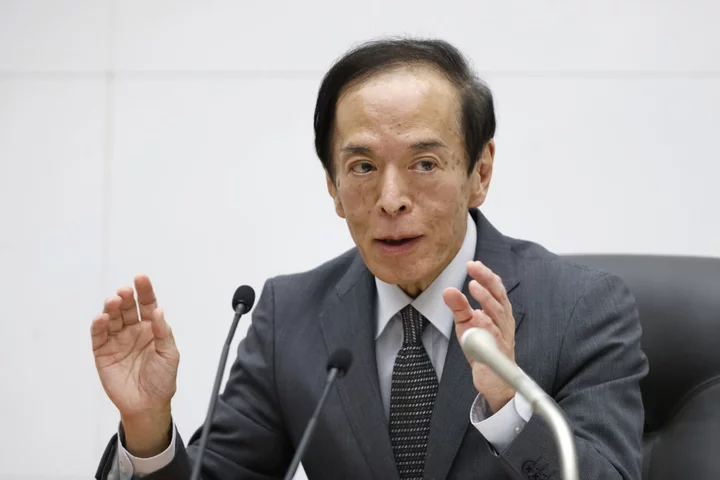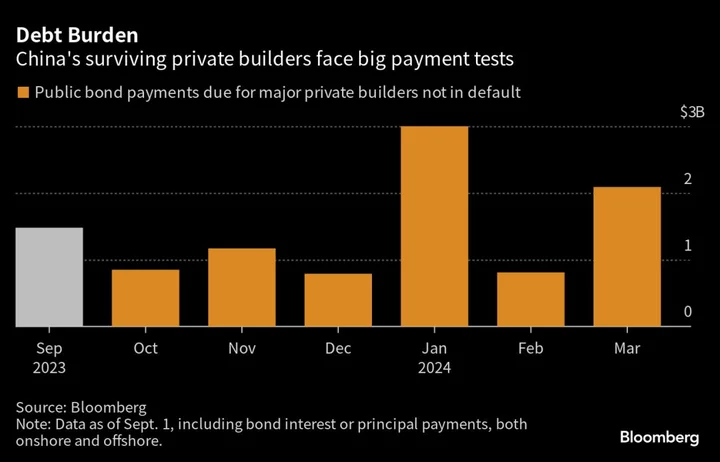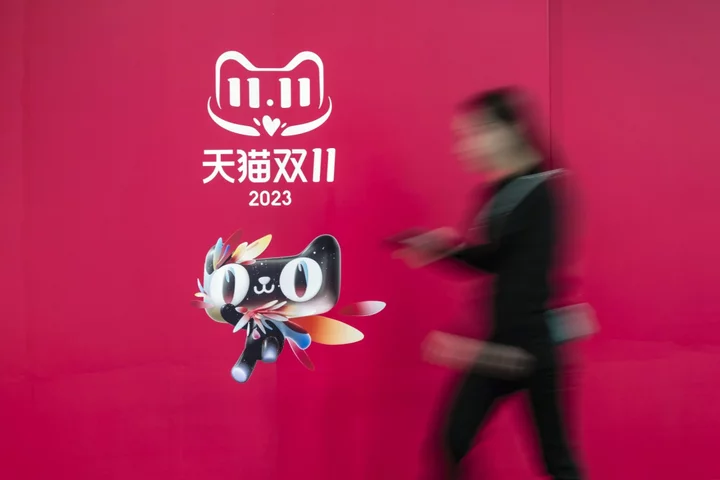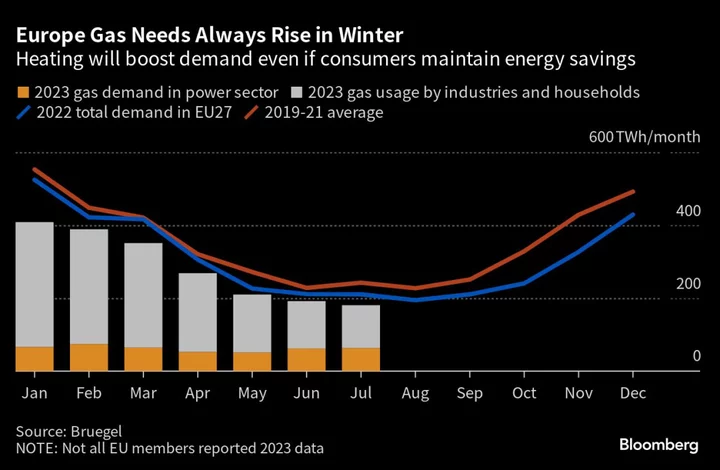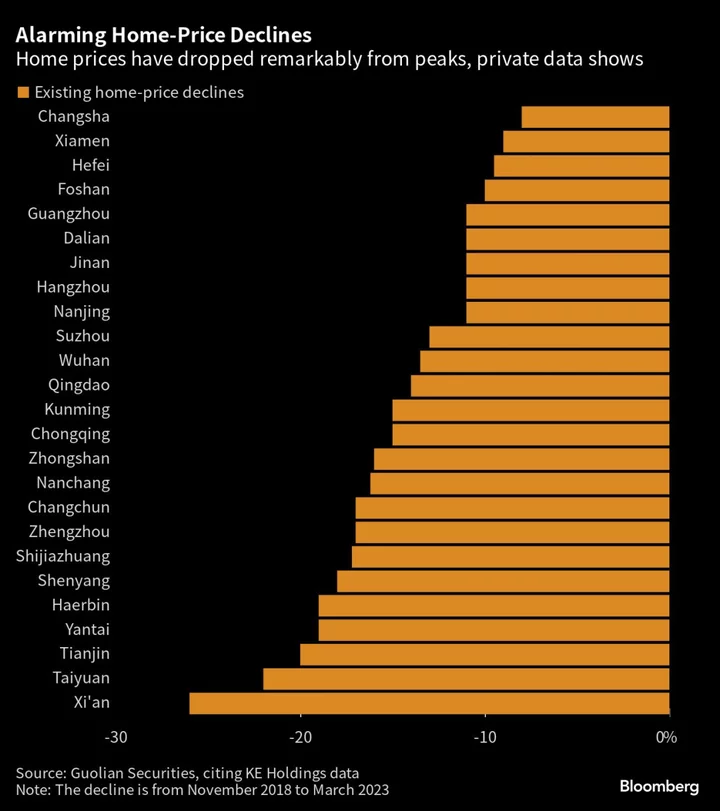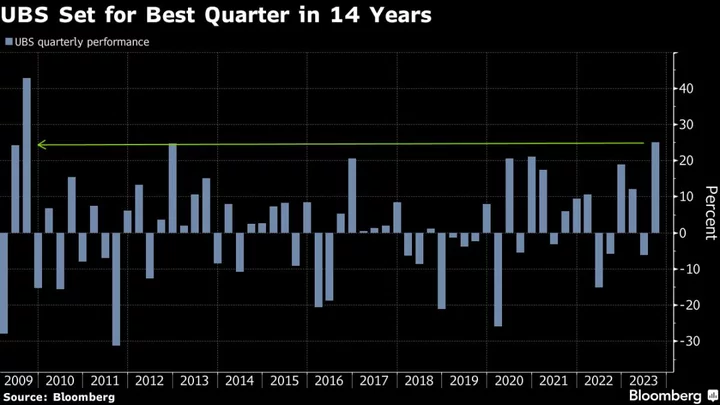The Bank of Japan has adopted a new word in English to describe its stance of continuing with large-scale monetary easing, adding to the list of changes the bank has made since Governor Kazuo Ueda took the helm.
At Ueda’s first policy meeting last month, board members discussed “patiently” maintaining easing, according to a summary of opinions released by the central bank Thursday.
“Patiently” implies waiting for a condition to be fulfilled and contrasts with the previous wording of “persistently” keeping up with easing, a word that was used up until the March meeting, when the BOJ was still led by Ueda’s predecessor Haruhiko Kuroda.
Given that the original Japanese word remained unchanged, the change in English doesn’t suggest a major shift. It does however hint at Ueda’s intention of signaling a gradual move away from the Kuroda era. Some economists suggest that the change acknowledges a shift in Japan’s economic reality.
Read more: BOJ’s Easing Bond Market Headache Reduces Need for Policy Tweaks
The word “persistently” appeared three times in the English version of a record of the March meeting. In April, “patiently” was used twice while “persistently” was no longer used.
“Communication with global market players is extremely important for the BOJ,” said Nobuyasu Atago, chief economist at Ichiyoshi Securities and a former BOJ official. “The BOJ scrutinize every word very carefully so this must be intentional and signals a shift in its view.”
The word “patiently” is probably more appropriate for Japan’s economy now given that prices are rising at the fastest pace in decades, Atago said. With patience, policy could be changed down the road once conditions are met.
Thursday’s summary also indicated the board’s acknowledgment of the progress made toward th BOJ’s 2% price target. The inflation goal is coming into sight, while easing is appropriate for now due to risks on both the upside and downside, one member said.
Clear communication with global investors is critical for the BOJ, given they have significant power to decide the direction of Japanese financial markets. Investors are still measuring the credibility of Ueda’s words, after Kuroda continued to shock global financial markets during his tenure.
In a sign of how conscious the BOJ is of how overseas investors may react, in 2018, the bank wrote its forward guidance in English first to avoid any sharp reaction in the yen and stocks, people familiar with the matter told Bloomberg then.
Global central bankers are also likely more familiar with the word ‘patient’ after the Federal Reserve used it in its forward guidance. The BOJ’s new wording also suggests a recognition that it’s coming to a critical stage of whether its stable 2% inflation target will be achieved.
An underlying inflation gauge is running at the fastest pace since 1981, and the bank raised its price forecasts in the latest quarterly outlook report released with its policy statement last month.
“My honest feeling is that I want to continue with monetary easing with a little more patience,” Ueda said at a post-meeting press conference on April 28.
Tetsuya Inoue, a Ueda’s former secretary when he was a BOJ board member, said that back then Ueda was eager to explain Japan’s monetary policy to those abroad. Still, it’s hard to say if the change of wording this time is Ueda’s idea, he said.
“The change of wording may have some certain significant meaning,” said Inoue, senior researcher at Nomura Research Institute. The implication may be that “the BOJ is watching economic data with an open mind.”

